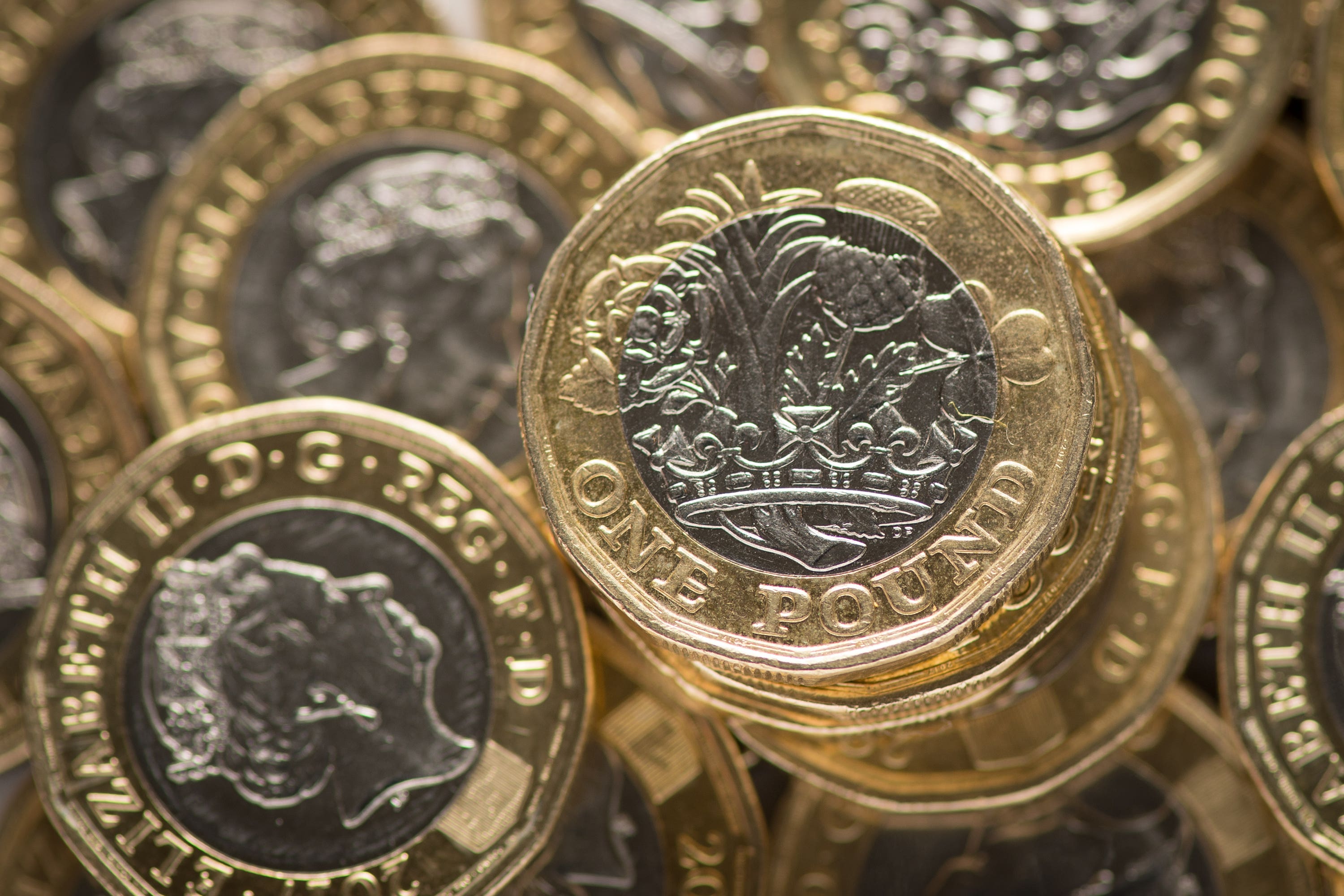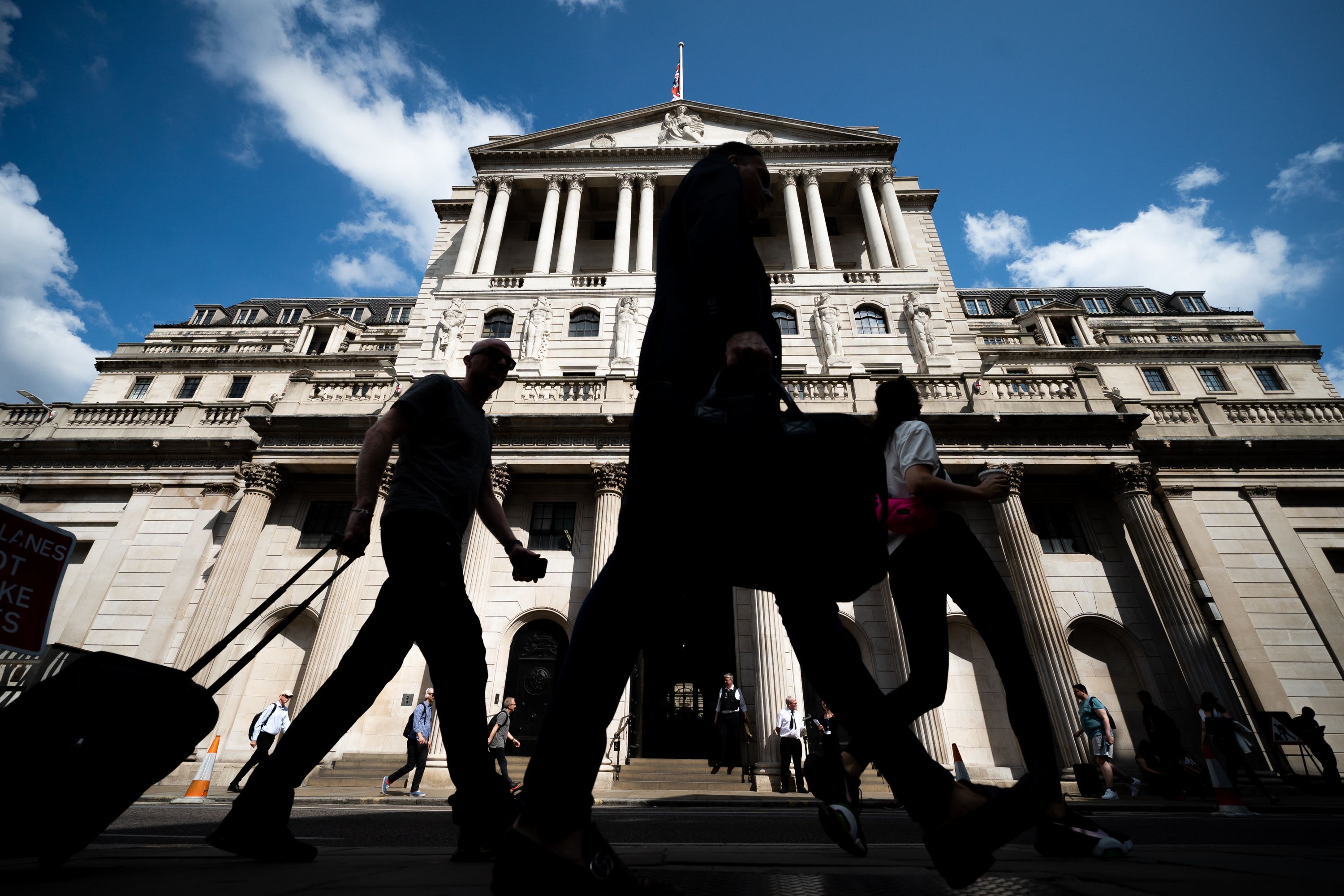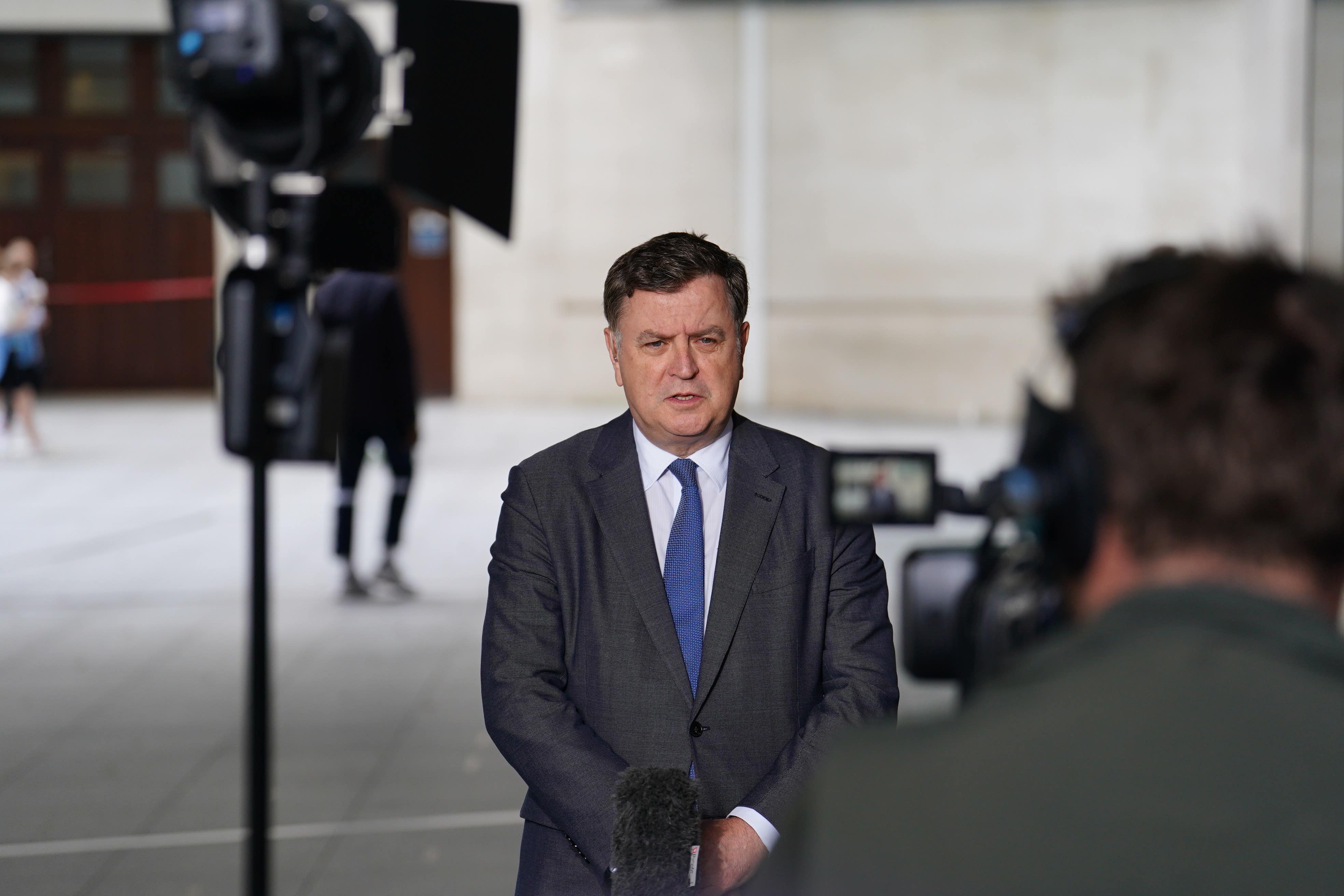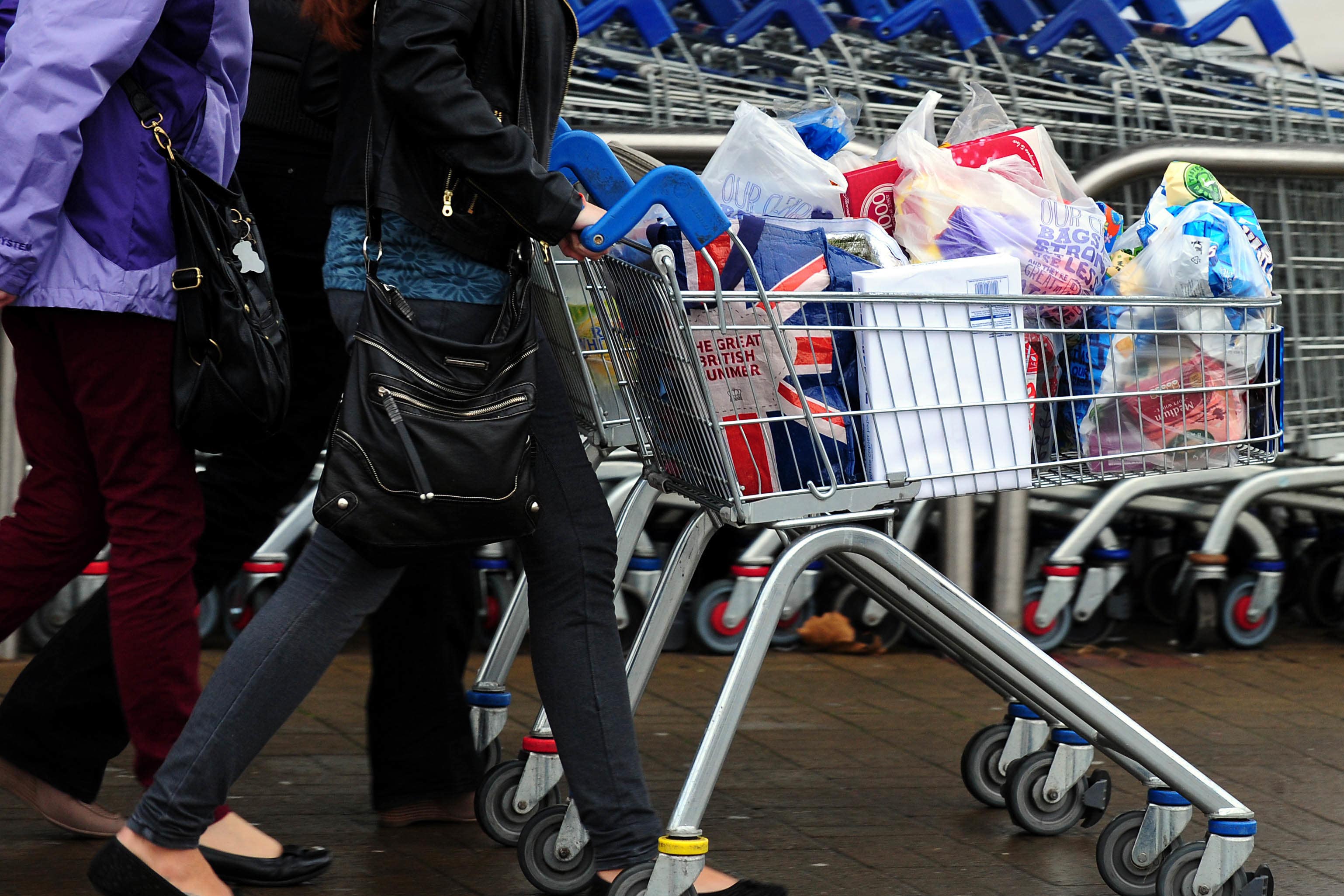Inflation drops to Bank of England’s 2% target for first time in almost three years
Inflation dropped to 2% in May, down from 2.3% in April, according to the Office for National Statistics

Your support helps us to tell the story
From reproductive rights to climate change to Big Tech, The Independent is on the ground when the story is developing. Whether it's investigating the financials of Elon Musk's pro-Trump PAC or producing our latest documentary, 'The A Word', which shines a light on the American women fighting for reproductive rights, we know how important it is to parse out the facts from the messaging.
At such a critical moment in US history, we need reporters on the ground. Your donation allows us to keep sending journalists to speak to both sides of the story.
The Independent is trusted by Americans across the entire political spectrum. And unlike many other quality news outlets, we choose not to lock Americans out of our reporting and analysis with paywalls. We believe quality journalism should be available to everyone, paid for by those who can afford it.
Your support makes all the difference.Inflation has fallen back to the 2 per cent target for the first time in nearly three years in a boost for prime minister Rishi Sunak’s faltering election campaign.
The Office for National Statistics figures show the Consumer Prices Index (CPI) dropped to 2 per cent in May, down from 2.3 per cent in April.
The new figure marks the first time inflation has been at the Bank of England’s target since July 2021, before the cost-of-living crisis saw inflation shoot up – at one stage hitting levels not seen for 40 years.

Services price inflation – which, according to the Bank, gives a better picture of medium-term inflation risks – fell 0.2 points to 5.7 per cent, but did not drop as low as the 5.5 per cent expected by economists.
While the pound gained against the US dollar on Wednesday morning, Britain’s FTSE100 and FTSE250 stock indices both fell in value by 0.2 per cent as investors grappled with the lukewarm fall in services price inflation.
But the CPI’s return to 2 per cent is likely to give a pre-election boost to the Conservatives, with Mr Sunak having been quick to declare victory on inflation already last month despite predictions it was expected to fall sharply as rising energy and food costs subside.
Nevertheless, most economists believe the Bank of England will hold interest rates at 5.25 per cent on Thursday, with very little hope of a reduction before the nation head to the polls on July 4.
While the Resolution Foundation think-tank said the stickier services price data would give the Bank of England “pause for thought”, the Confederation of British Industry (CBI) said the stage was now set for Threadneedle Street to cautiously cut interest rates in August.

Hailing a move towards “a more benign inflationary environment”, CBI principal economist Martin Sartorius said: “However, many will still be feeling the pinch due to the level of prices being far higher than in previous years, particularly for food and energy bills.
“Today’s data sets the stage for the Monetary Policy Committee to cut interest rates in August, in line with our latest forecast’s expectations. However, rate-setters will still need to weigh the fall in headline inflation against signs that domestic price pressures, such as elevated pay growth, are proving slower to come down.
“This means that they are likely to move cautiously beyond August to avoid putting further upward pressure on inflation, especially as the growth outlook improves at home and geopolitical tensions remain heightened.”
However, Robert Wood at Pantheon Macroeconomics said higher services inflation could mean the Bank’s much-anticipated rate cut is now pushed back until September.
Speaking as his party languishes in the polls, cabinet minister Mel Stride claimed to Times Radio that the “very significant” inflation news would allow the Tories to “bear down on taxes”.
But he evaded questions about top businesspeople including Phones4U billionaire John Caudwell abandoning the Conservatives for Labour, stressing that inflation “is very good for business, it’s very good for growth, it’s good for people’s living standards”.
Chancellor Jeremy Hunt said: “A year-and-a-half ago, the Bank of England predicted the longest recession in 100 years. Instead, we have had a soft landing with inflation that was higher than nearly any other major economy now lower than nearly all our major competitors. That shows the difficult decisions that we’ve taken have paid off.”
However, Trades Union Congress general secretary Paul Nowak warned the fall in inflation cannot disguise “the worst period for living standards in modern times”, with prices rising more quickly in the past three years than is typical over an entire decade.
Consumer prices have risen by around 20 per cent in Britain over the past three years.

“Ministers can try to rewrite history all they like,” said Mr Nowak, adding: “Food and energy bills have surged. Rents and mortgages have skyrocketed. And real wages are still worth less than in 2008. Working people have paid the price for this government’s failure with household debt also increasing at record levels.”
Suren Thiru, of the Institute of Chartered Accountants, warned that “inflation’s trajectory may get bumpier after the election with the higher National Living Wage and low labour supply likely to increase the upward pressure on prices, even though another fall in energy bills is coming in July”.
He added: “Despite this landmark fall in inflation, concerns over both underlying price pressures and changing policy in the run-up to a general election means a June interest rate cut is almost certainly off the table.”
Mr Sunak said it was “great news” that inflation was now lower than in Germany, France and the United States, claiming that “the economy has now turned a corner” because of his own “bold action” in having “stuck to a clear plan”. He warned voters not to “put all that progress at risk with Labour”.
But shadow chancellor Rachel Reeves said: “After 14 years of economic chaos under the Conservatives, working people are worse off”, adding: “Labour has a plan to make people better off bringing stability back to our economy, unlocking investment and delivering reform.”
Additional reporting by PA
Join our commenting forum
Join thought-provoking conversations, follow other Independent readers and see their replies
Comments